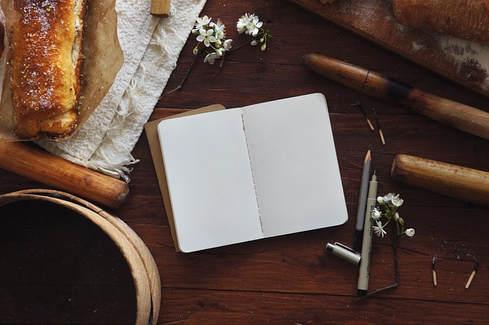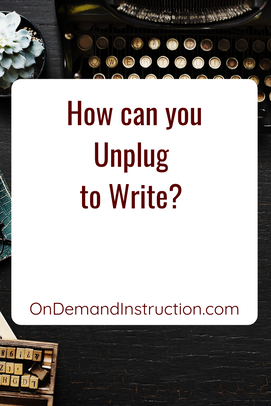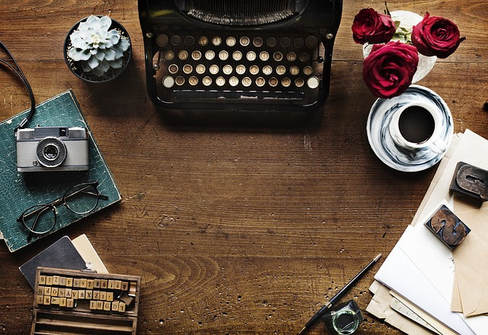
Ask anyone and they will tell you that it is difficult to focus these days. We have more competition for our attention than ever before. Smart phones have truly undermined our ability to enjoy a moment of quiet reflection or creative energy. Rather than helping us to communicate better, they have added a layer of stress and expectation.
When cell phones first came out, a friend hassled me for not getting one. She wanted to be able to reach me anytime of day. On the day she said this, I had been at a place called St. Mary’s Glacier that day on a hike, which is a mile hike straight up to reach a gorgeous glacier-fed mountain lake. My day had been quiet, which allowed me time to think and reflect. Why would I want to carry around a device so that anyone could disturb me whenever they feel like it? The phone had always felt like an invasion of privacy to an extent, because I would never predict when it would ring and break the silence. For a person who spent years in college and has always been a heavy reader and writer, quiet space is not a luxury, it is a necessity. Today, like everyone else, I have a smart phone, and it is attached to every attention-seeking application on earth. Like everybody else, I have my email and Google on the phone, and I take a zillion pictures of the kids and the cats. I have Facebook, Pinterest, and Instagram—and all of my social media I justify having because I need to stay connected with my students and readers, even though I know that social media is distracting for me.
And that is what smart phones do to us. They stop us from slowing down. They turn our jobs into 24/7 tethers that drag us back to check for one more work email just in case the boss is up. They sit on our phones and flicker reminders that someone might want to talk to us, so we had better pay attention. They nag at us to keep checking in with the technical world to ensure we are still plugged in, still connected. Back in the olden days, we used to blame the television for our distractions, and it was and is still a distraction, but since the phone fits in a back pocket, its effects are more nefarious indeed.
So, how do creative people deal with this situation? Do we have to become Luddites and eschew all technology? Do we have to leave our phones behind and maybe even our laptops too since the internet features connected to our computers are no better than those on the smart phone? How does a writer manage the technologies that compete for our attention?
For starters, we have to take control of the situation and accept responsibility for what is happening to us. It can be appealing to fall back on the idea that we lack self-control or that we have lost our ability to focus on a single task. I have heard more and more people suggest that they lack the ability to focus with a tone of resignation. Just because the situation of owning a smart phone creates a challenge of feeling distracted does not mean all is lost. When we can accept that the phone is not doing anything to us, but rather the outcome of being distracted is the way we are engaging with the device, a solution presents itself. The way we are engaging with the device is the problem, and we can change that. So, what are some ways that we can unplug for short periods of time? How can we create a space between ourselves and the devices that take up our attention? That space should be physical space and mental space. When we physically separate ourselves from our devices, our attention moves elsewhere. It may take a few minutes to realize the calm that comes from being away from the device, but that space allows us to decide how we can organize our personal space in a different way. We also need to consider the mental space that we need from our devices. The panic some people feel when they do not check their email accounts or social media feeds creates a fear of missing out condition which makes them feel like an amazing party is happening and they were not invited. Taking a break from that level of stress gives a person the ability to reconnect with their own thoughts. Instead of worrying about what everyone else is doing, a writer can finally take a moment to breathe and to think. Writers need quiet, reflective time to be able to compose quality pieces. If we are constantly pulled into devices that take our attention away from our creative projects, then where will we get the energy to be able to write at all? If we can recognize that the connection to devices is one that we have to take charge of and control, then we can redefine the way we interact with the devices and take back the quiet space we need to create. While you are thinking about how to use your device in a different way, take steps to create more space between you and your devices. 1. Turn off the phone 2. Put the phone in another room or in the car 3. Turn off the internet router or the internet key on the laptop 4. Leave the house to write and leave the phone and laptop behind 5. Schedule specific time during the day to write. Turn off all devices during this time. 6. If you cannot write at home, then leave the house. Go to a cafe, a restaurant, a library—any place where you can write and focus without your devices. 7. Set up a partnership with another writer, reader, or creative friend. Meet up to write together and monitor each other so that neither of you are getting distracted by a device. 8. Create a rewards system for your writing time. When you meet your daily goal (word count or time on task), then give yourself the reward that appeals to you—a latte, time to watch TV, time on your device goofing off, etc. Writers can be distracted by the features that our modern devices offer, but we do not have to be affected by them. We can redefine the way that we connect to our writing by creating more time to write. We can choose to redefine the way we interact with our devices and make a better space for our writing. Because the more uninterrupted time we have to write, the more writing we do, and the more productive we are as writers. Unplug and write. Related Blog Posts
Unfortunately, I got to find out this one the hard way. While saying goodbye to my exhausted laptop, it crashed while I was in the process of backing up my files for transfer. Although I am reasonably good at backing up my files on a regular basis, my desktop had new files that are now gone.
At least a dozen short stories and two academic articles as well as an annotated outline for a nonfiction book were among the losses—around a hundred hours of writing disappeared in an instant. Like any writer, I was devastated to watch the writing disappear into the ether as the proverbial blue screen of death popped up. $200 later and not a single computer geek on earth was able to retrieve the files. They were just gone.
My first thought was of Anne Bradstreet, believe it or not. In her poem, “Verses Upon the Burning of Our House” from 1666 when her house burned in front of her and she lost everything. Thinking of losing the whole house definitely lessens the blow of losing some files. Yes, I lost writing that I have been working on for the last couple of months, but I do not have to rebuild my life, just the words on my pages.
As writers, we hold onto our words in a different way than other hobbyists. Think of another hobby—woodworking or knitting. If I am knitting a sweater and it turns out horribly because the wool is stained after I started using it to make a sweater, I accept defeat and move on. If the wood pile that I use as my store get soaked overnight and I run out of good ash or oak for finishing the dresser I am building, then I accept defeat and move on. We seem to recognize that when we engage in a creative activity, there may be setbacks and those setbacks are acceptable.
When we write, those words feel like a basket of butterflies—precious, delicate, and fragile. One harsh wind and they could be gone forever. For a variety of reasons, when we write, the activity is so personal, so connected to our development and revelation of self, and so real and true that to lose words can feel like the loss of a part of ourselves.
And yet, we kill our darlings every time we engage in the writing process. With each edit, we replace a favorite phrase with a better fit, even though we may be less emotionally connected to it. We cut whole paragraphs and whole pages to hone the rough edges of stories and make them clearer. Every time that we approach writing, the editing process is part of our thoughts.
Words are temporary. Yes, the process of writing is therapeutic, it is restorative, and it is trans-formative. When we write, we become writers. We become not just craftspeople but masters of the art of literature; our thoughts, feelings, hopes and intentions all get wrapped up in packages of words that we long dearly to share with the world.
Our words hold meaning beyond what they say about your chosen topics. They hold meaning in that they proclaim who we are—essayists, memoirists, novelists, and poets. Our writing is more than writing, rather it is a definition of self and a clarification of personal and professional purpose.
And yet, words are just words. Stories are just play things. Articles are just symbols on the page. All of these can be rewritten much more easily than a house built of wood that can burn again. Because what happens when you lose your writing? You accept the setback and you keep going. You write some more, you replace what you wrote, and you write something new, because the job of a writer is the put the pen to paper and get to work.
Luckily, when we lose our writing, all we lose are words. We do not lose our homes, our memories, or our friends; we just lose our darlings for a short time until we recreate them anew in a new story or article. As writers, we are lucky to be able to rebuild from the ashes something more beautiful that what we had before. Related Blog Posts
|
About the SiteWelcome, Writers! Archives
September 2023
|











 RSS Feed
RSS Feed